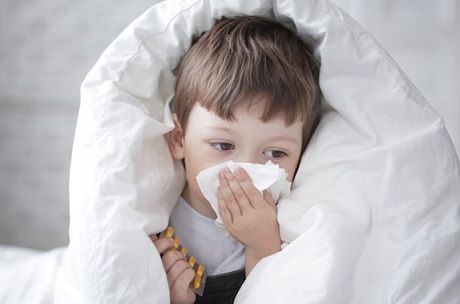Italian Researchers Unveil Worrisome Endocrinological Involvement In Children And Adolescents Affected By COVID-19
Thailand Medical News Team Aug 12, 2023 2 years, 6 months, 2 weeks, 6 days, 23 hours, 45 minutes ago
COVID-19 News: The COVID-19 pandemic, caused by the severe acute respiratory syndrome coronavirus 2 (SARS-CoV-2), has raised concerns about its potential impact on the endocrine system in children and adolescents. Italian researchers from the University of Pavia, Vittore Buzzi Children’s Hospital, and Università di Milano have undertaken a thorough review to uncover the intricate relationship between COVID-19 and endocrinological anomalies in this population. The review delves into the various aspects of endocrine involvement during and after COVID-19 infection, shedding light on the potential mechanisms underlying these connections.
 Thyroid Dysfunction and COVID-19
Thyroid Dysfunction and COVID-19
One area of focus has been the potential connection between SARS-CoV-2 infection and thyroid dysfunction in children. Studies and
COVID-19 News reports from the UK and New York have indicated a rise in untreated transient thyroid dysfunction, possibly linked to thyroiditis secondary to COVID-19. Hospitalized patients with severe COVID-19 exhibited signs of sick euthyroid syndrome, marked by low free thyroxine (fT3) levels alongside normal thyroid-stimulating hormone (TSH) levels. The evidence suggests a correlation between COVID-19 severity and thyroid gland impairment, warranting further investigation into the mechanisms responsible.
Adrenal Involvement and Potential Risks
COVID-19 has demonstrated the ability to impact adrenal gland function, leading to primary and secondary adrenal insufficiency. Cytokine-mediated mechanisms have been implicated in both primary and secondary adrenal insufficiency, emphasizing the importance of monitoring adrenal function in pediatric patients. Cases of autoimmune polyglandular syndrome type 2 triggered by COVID-19 have also been documented, highlighting the need for careful observation of adrenal function in affected individuals. The potential interplay between steroid therapy for multisystem inflammatory syndrome in children (MIS-C) and hypothalamic-pituitary-adrenal (HPA) axis suppression further emphasizes the complex relationship between COVID-19 and adrenal function.
Hypothalamic-Pituitary Axis and COVID-19
COVID-19's impact on the hypothalamic-pituitary axis (HPA) has been explored, with evidence suggesting that the virus might target hypothalamic and pituitary cells expressing angiotensin converting enzyme 2 (ACE2) receptors. This raises the possibility of direct hypothalamic injury, immune-mediated hypophysitis, or cytokine-induced alterations. Isolated cases, such as a ROHHAD-syndrome-like phenotype and lymphocytic hypophysitis following COVID-19 infection, have been reported, but more research is needed to understand the full extent of the virus's impact on the HPA axis.
Type 1 Diabetes and Diabetic Ketoacidosis
The connection between COVID-19 and type 1 diabetes (T1D) remains a topic of debate. Some studies suggest an increased incidence of newly diagnosed T1D cases since the pandemic's onset, while others fail to establish a direct link. Diabetic ketoacidosis (DKA) prevalence and severity have shown more consistent trends, with numerous studies reporting higher ra
tes among newly diagnosed T1D patients. Potential mechanisms include viral-induced destruction of pancreatic beta cells and autoimmune reactions, necessitating further investigation.
Central Precocious Puberty and COVID-19
COVID-19 has triggered diverse trends in pediatric endocrinology, including a decrease in pediatric growth hormone deficiency tests and an increase in central precocious puberty (CPP) diagnoses. While the direct link between COVID-19 and CPP is yet unclear, pandemic-induced physical and psychological changes are believed to contribute to CPP onset. Factors such as stress, reduced physical activity, screen time, and altered sleep patterns likely play pivotal roles in influencing hormonal pathways.
Conclusion
The Italian study team have delved into the intricate relationship between COVID-19 and endocrinological involvement in children and adolescents. The evidence suggests potential links between COVID-19 and thyroid dysfunction, adrenal involvement, hypothalamic-pituitary axis alterations, T1D onset, and central precocious puberty. However, more research is needed to fully understand the mechanisms underlying these associations. As the pandemic continues, monitoring and managing endocrine function in pediatric patients with COVID-19 remain critical to providing comprehensive care and appropriate treatment. This research highlights the complexity of the endocrine system's response to COVID-19 and underscores the importance of ongoing investigations into its effects on pediatric health.
The study findings were published in the peer reviewed Journal of Clinical Medicine.
https://www.mdpi.com/2077-0383/12/16/5248
For the latest
COVID-19 News, keep on logging to Thailand Medical News.
